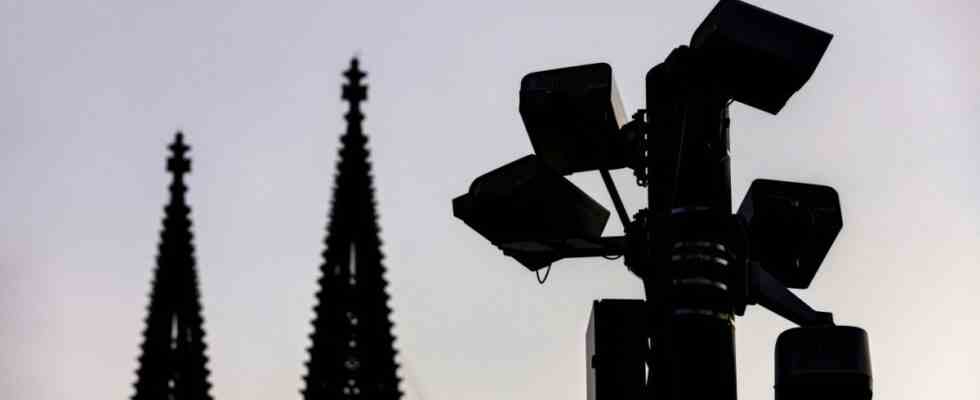In 2019, the Al-Jazeera channel invited Scottish film director Ken Loach and French writer Édouard Louis together for a conversation that has now been published under the title “Conversation on Art and Politics”. This is not entirely unimportant insofar as the political and art-political inventories on which their art is based have intensified since then and the conversation in this sense has not aged a day.
Both are very similar in their artistic approach, which means that they mostly agree with each other. The poor in France and Britain are so ashamed of the achievement ideology that anyone can make it if they try hard enough that they turn away from the political arena. They voted on the right because the left-wing parties no longer understood their language. And they are exposed to political violence, which they pass on to each other. That explains their rude treatment of one another, which in turn makes them appear in the eyes of the propertied classes as barbarians in need of civilisation.
Language itself becomes an actor in the class struggle
Édouard Louis believes that this violence is a phenomenon that Ken Loach makes visible in his films, “namely when people live under difficult, violent social conditions, when they are exposed to a form of social violence that has a relentless effect on them, then they often develop – not automatically, but often – itself a form of violence, or at least aggression towards others”.
This violence is expressed not only in tax and social policy decisions, but also in discursive constellations. Louis draws on Bourdieu: On the one hand there is the “reactionary, right-wing perspective” on the poor, in which they are seen as dangerous, aggressive and lazy. On the other hand, a “supposedly left-wing gaze, with which the poor are seen as authentic, full of life and deeply good-natured and generous”.
Since his novel “The End of Eddy” was published in 2014, Édouard Louis has been the most prominent voice in European class writing.
(Photo: IMAGO/TT)
These two seemingly opposite perspectives are what Pierre Bourdieu called “opponents and accomplices”: “They pretend to be opposed to each other, but in reality they form a single closed thought structure.” This way of thinking robs the ruled of the opportunity to design themselves as a sovereign subject, according to Louis, it is a matter of “prolonged, perpetuated violence, it has its origin in class violence” and it permeates everything.
The British film director Ken Loach became known for the social realism of his films.
(Photo: DANIEL LEAL-OLIVAS/AFP/AFP)
Because this violence is linguistic, language itself becomes an actor in the class struggle. Ken Loach demonstrates the idea using the term “security” as an example. From above, the term refers to a problem situation that should be countered with more police, more surveillance, and harsher penalties. However, a “left security policy” must consist of expanding the welfare state and protecting the rights of minorities. After all, the feeling of security among the lower classes is primarily affected by poverty and exclusion, so longer prison sentences don’t help either.
When people feel safe, they become tolerant
Loach: “The idea that the world is dangerous and you have to create spaces in which people feel safe is a dead end. All spaces have to offer security.” Incidentally, this is also the key to combating right-wing populism: when people feel safe, they become tolerant.
However, the price of this political earmarking of language is that there can be no place for literature outside of this struggle between classes. She is always on the side of either the rulers or the ruled. In this account, when she claims to be apolitical, she only disguises her complicity. According to Louis, progressives must “free themselves from naive discourses about culture ‘that unites us’, that ‘opens our eyes’, that ‘makes us grow’, etc.” Instead, Brecht’s concept of catharsis also applies here: art must show the world in all its intolerability and confront the public with reality, which would otherwise be buried under “state lies, ideologies, populism”.
Édouard Louis, Ken Loach: Conversation on Art and Politics. Translated from the French by Hinrich Schmidt-Henkel. S. Fischer, Frankfurt am Main 2023. 80 pages, 17 euros.
(Photo: S.Fischer)
A real difference of opinion between the two is hinted at only once, but in a significant place: Ken Loach, born in 1936, sees the key to the self-empowerment of the propertyless classes in the restoration of traditional communities. His father was a miner and his father was a miner, “not a job you wish your kids to have…but they’ve built amazing communities!” Margaret Thatcher deliberately tried to break it up because she feared her political clout.
Édouard Louis, born in 1992, doesn’t want to hear anything about that: “How did a queer child experience growing up in these communities of miners you’re talking about?” For women and minorities, these communities, which are always implicitly meant to be heteronormative, male communities, mean primarily oppression. As an individual, he wants to have the right to leave his community, Louis said.
Last but not least, his novels are about the fact that this change in milieu is always accompanied by alienation from one’s own origins. The climber suddenly finds himself on the other side. He formulated the problem as follows to Ken Loach: “If a worker says to me: ‘But I want to continue working in the factory’, I can then answer him: ‘No, the factory means alienation and violence, you can’t want that ‘? Who should decide for another what violence is? There are no easy answers.”

